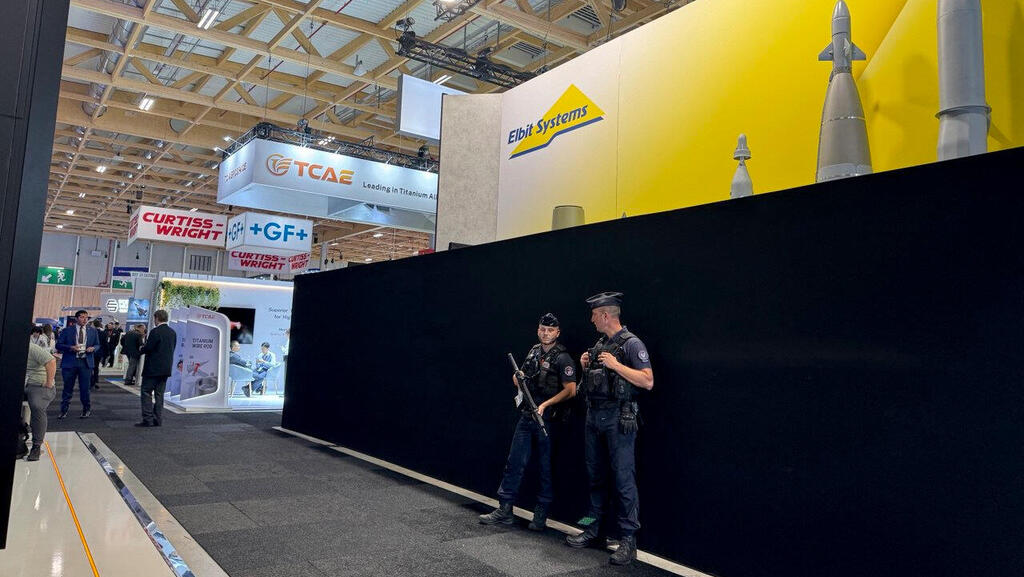
Defense deals on ice as Europe rethinks buying Israeli weapons
Arms race demand meets political hesitancy amid Gaza famine images.
The war in Gaza has entered its 22nd month. The humanitarian crisis and famine in the Strip are eroding Israel’s international image, pushing the country toward political isolation and the ranks of pariah nations. European capitals continue to warn Israel of sanctions that could cut it off from economic, commercial, and scientific ventures, alongside an impending recognition of a Palestinian state during the UN General Assembly in September.
Signs of this political tsunami are already visible. Israeli companies in Europe are facing a growing cold shoulder. The CEO of a major industrial firm links this shift to his recent loss in a tender worth tens of millions of dollars with a European country.
“We made it to the final stage, but last week were informed that our bid was rejected,” he told Calcalist. “Of course, tenders always have winners and losers, but the timing, just after that country announced restrictions on trade with Israel, speaks for itself.”
The same CEO said he salvaged another European deal only by committing to complete confidentiality. “I gave the project a code name and hid the manufacturer’s identity so they wouldn’t know it came from Israel,” he said.
An insatiable arms race
The ongoing Russia–Ukraine war has triggered an arms race, making Europe the primary market for Israeli defense exports. In 2024, over half of Israel’s defense exports went to Europe. But now, some defense companies report growing delays in finalizing deals.
“These are not normal times, not even compared to previous wars and political crises,” said the CEO of a long-standing arms company. “Contracts are stalling. Clients are waiting for the Gaza situation to end so deals can go through without public backlash. For now, we’re being kept on a low simmer.”
Israeli weapons have long had a strong global reputation, thanks to their operational use by the IDF. “After Operation Rising Lion in Iran, there was a surge of interest, especially from Europe,” said another CEO. “But that momentum evaporated quickly. The famine images from Gaza pushed our military success off the agenda. Now, anything non-urgent is postponed. Long-term partners tell me: ‘We’ll wait.’ They’re worried how a deal with Israel would play back home.”
Attendance at global defense exhibitions is shrinking, and fewer foreign purchasing delegations are visiting Israel.
Related articles:
A missed opportunity in a growing market
Last year, Israeli defense exports hit a record $14.8 billion, with 54% going to Europe, nearly half in air defense systems. A defense source familiar with the European market described it as “selective, hypocritical, and duplicitous.” He said that for air defense, where Israel excels, European buyers are more hesitant to overlook Gaza’s suffering; for products available elsewhere, they are quicker to signal moral concerns.
Two months ago, Brig. Gen. (res.) Yair Koles, head of the Defense Export Division, warned of uncertainty ahead. Images of destruction in Gaza were already casting doubt on whether 2025 could match 2024’s record.
Meanwhile, Europe’s defense market is still expanding. At the June NATO summit in The Hague, U.S. President Donald Trump pushed member states to raise defense spending from 2% to 5% of GDP annually over the next decade. He is steering this windfall toward U.S. arms makers, leveraging Israel’s recent battlefield successes with American platforms like the F-35.
French President Emmanuel Macron is likewise promoting domestic arms producers, partly by excluding Israeli firms from French arms exhibitions over the past two years.
Political distractions at home
Prime Minister Benjamin Netanyahu remains preoccupied with domestic political battles, targeting the attorney general, securing ultra-Orthodox draft exemptions, and sustaining a war that critics say serves his coalition’s survival more than Israel’s security.
Industry fears that even after the war, restoring normal business ties will be difficult. Ministers’ inflammatory statements, ranging from calls to “erase Gaza” to advocating Jewish resettlement, further erode Israel’s global standing. The Dutch cabinet recently declared National Security Minister Itamar Ben-Gvir and Finance Minister Bezalel Smotrich “persona non grata.”
Even Germany is pulling back
Germany, historically one of Israel’s staunchest allies, has cooled its stance after Ben-Gvir accused it of “returning to Nazism” over its openness to recognizing a Palestinian state. The IDF’s refusal to allow Western journalists into Gaza, and restrictions on filming humanitarian aid drops, have compounded negative perceptions.
“This all adds up,” says Ron Tomer, president of the Manufacturers Association. “In the past, I’d get two calls a week from exporters facing problems in Europe. Now it’s two or three a day.”
Tomer criticized ministers for making provocative statements without accountability. “On Gaza aid, they first declared ‘not a grain of wheat’ would go in. Then, after the hunger campaign forced us to drop aid packages, we ended up with both the humiliation and the loss.”
A defense industry analyst said: “The world has embraced the Gaza hunger narrative, and Israel is cast as the villain. Something dramatic would have to happen to change that.”
